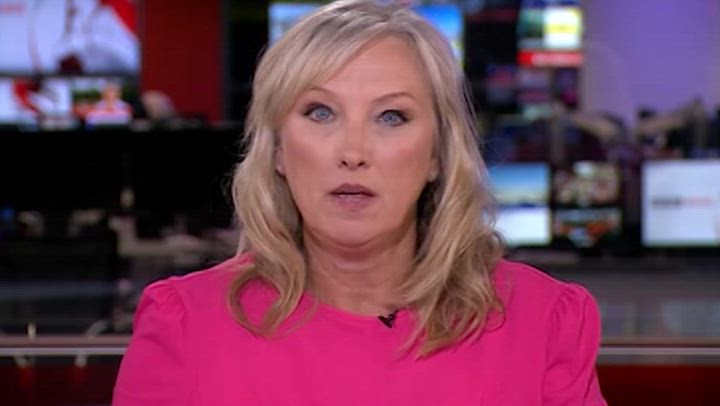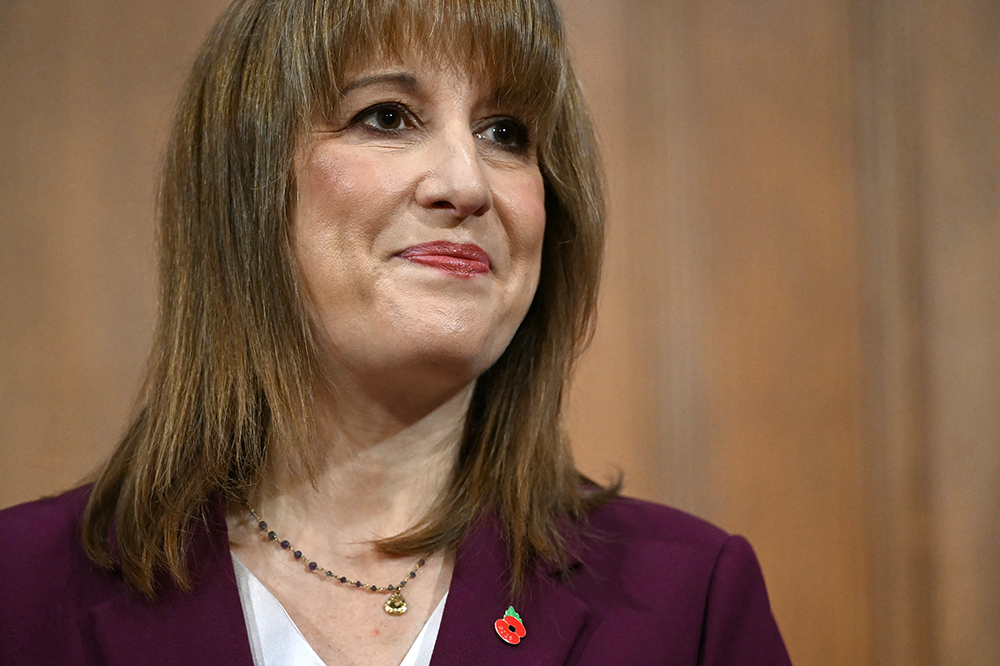Martine Croxall’s eyes spoke louder than her words when she corrected the clumsy and unnatural use of ‘pregnant people’ on her autocue earlier this year.
As a result, the newsreader found herself slap bang in the middle of the toxic dispute over the language of ‘inclusion’. Despite being congratulated at the time by viewers who were relieved that at least one person at the BBC still knew that women give birth to the next generation, Croxall has now been censured by Corporation’s Executive Complaints Units. Her facial expression, it was ruled, expressed a ‘controversial view about trans people’.
🚨In June, a BBC teleprompter instructed presenter, Martine Croxall, to say ‘pregnant people’.
— James Esses (@JamesEsses) November 6, 2025
She, bravely, corrected this term by saying ‘women’.
Today, the BBC has announced that she broke the rules because of her “facial expression”.
Our national broadcaster is a disgrace. pic.twitter.com/laFtN1xoEb
The thought police ruled that the look on Croxhall’s face gave the ‘strong impression of expressing a personal view on a controversial matter’. Yes, it darn well did. She expressed the common-sense view that everybody understood – and was free to express – until about ten years ago.
What this sorry mess also exposes, however, is the alternative ‘personal viewpoint’ shared by whoever wrote the script Croxall read from. While rebuking Croxhall, the corporation has completely failed to recognise its own massive breach of neutrality. This was not so much a speck in Croxall’s eye as a plank in the BBC’s. Impartial, this organisation is not – certainly when it comes to the transgender debate and which views are acceptable to share.
Even after the Cass Review and the Supreme Court judgment, the language police have not yet gone away
Let me be clear: it is women who become pregnant and women who give birth. This only becomes controversial if someone decides to change our language, perhaps in a futile attempt to change the way that we think about other human beings.
Even if it is futile, it is still a problem when our words are policed. On one level, not being able to call a woman a woman – without the risk of censure – has caused confusion. It has also left those doing the policing in a position of power over those who are being policed. That needs to stop.
I say that as a trans person myself. I might have transitioned – changed the way I present myself in public – but I am still the same human being and I still have the same biology. I don’t need virtue signallers to insist that everyone minds their language around me. I want people to use language that is readily understandable by everyone, common sense in other words. It should not be seen as hurtful or demeaning – or even controversial – to say that women become pregnant. Everybody knows it and nobody should feel the need to deny it.
If any good has come from this BBC edict then it could be that the public have been reminded that even after the Cass Review and the Supreme Court judgment, the language police have not yet gone away. We might all know that the emperor has no clothes but it still needs pointing out.
I hope that Croxhall is able to turn this rebuke into a badge of honour. While others might have gone along with the autocue – perhaps complaining about it privately afterwards – she showed courage in the moment. Her one pair of eyes said more than a thousand words. We should all wish her well.








Comments